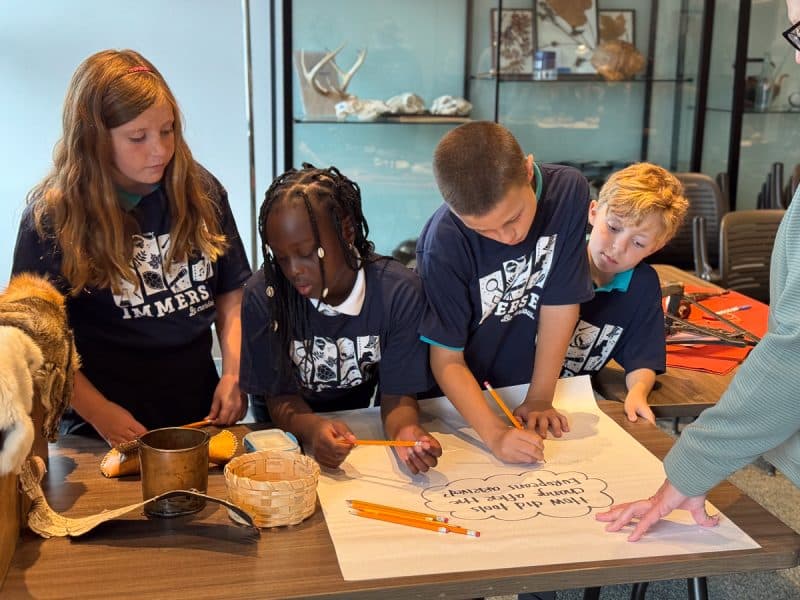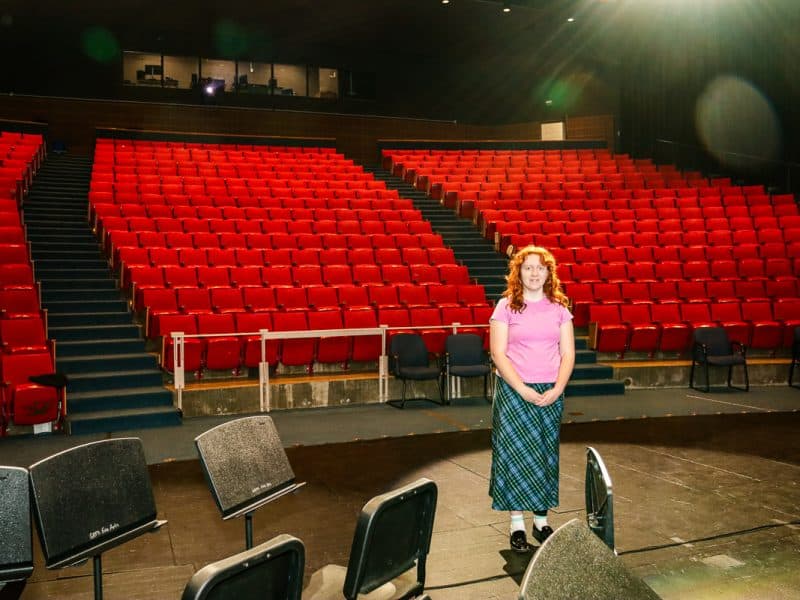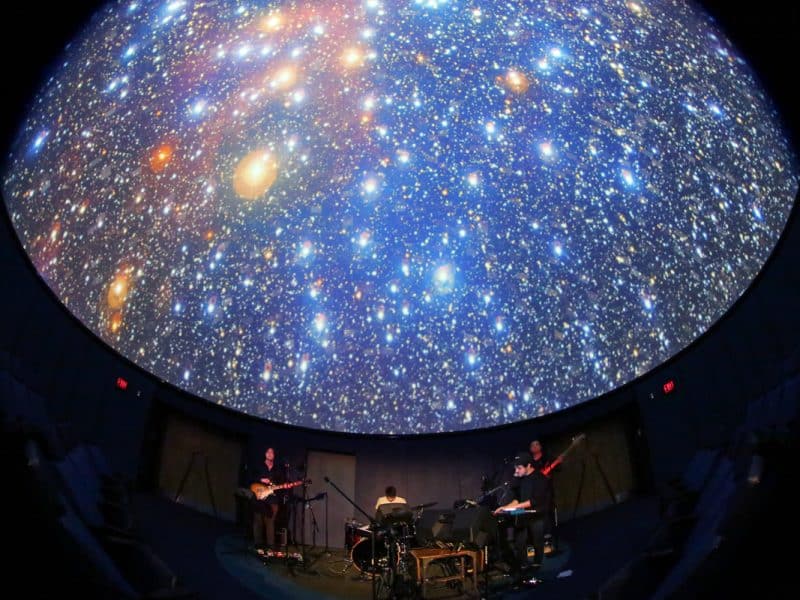Power of truth: Ebony Road Players provides safe space to explore race, identity & ignored histories
The Ebony Road Players and its executive director, Edye Evans Hyde, are pushing the community forward with theater, prompting people to listen, really listen, to stories of racism and injustice that they may not have otherwise known. Or wanted to hear.
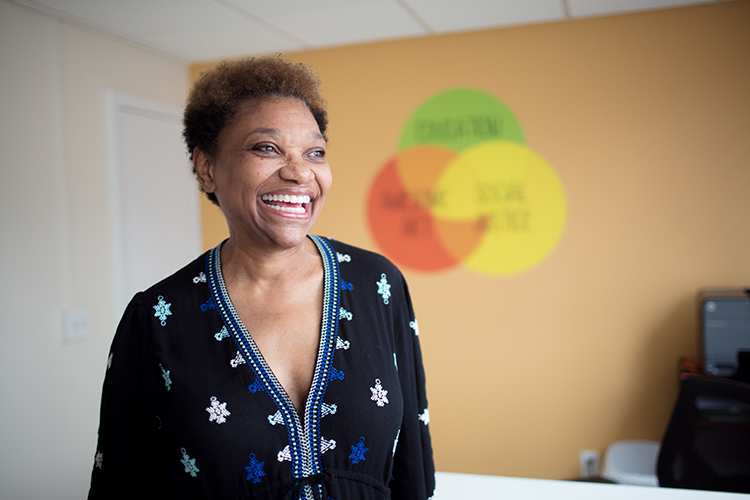
As the late afternoon sun sends last Friday’s final rays of light through the Ebony Road Players headquarters, a modest building on Kalamazoo Avenue with a Black Lives Matter sign perched in its window, Edye Evans Hyde turns toward the camera snapping photos of her.
“Don’t want to boast, but I know she’s the toast of Kalamazoo,” Hyde, the executive director of Ebony Road Players, begins to sing, the lyrics made popular by Glenn Miller more than half a century ago easily emanating from her as she flashes that million-watt smile that has lit up stages across the globe. In the five minutes that the photographer is taking her picture in front of a wall emblazoned with the words education, awesome art and social justice, it’s clear: Hyde does not stand still.
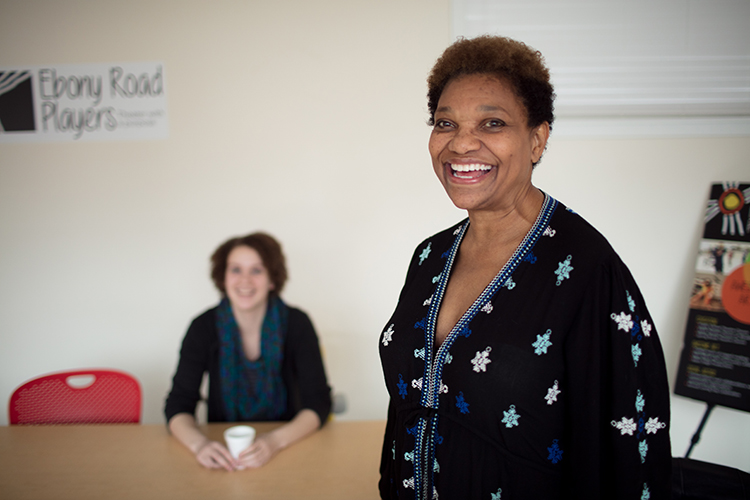
For Grand Rapids (and the world), this has proven to be an immensely good thing. After all, it has meant she has brought a stunningly wide range of talents in drama and music to the city, as well as to places like Los Angeles, Shanghai and Italy. And it means this polka band performer-turned rock group singer-turned international jazz musician-turned actress has spent years pushing the community forward with music and theater, prompting people to listen, really listen, to stories that they may not have otherwise known. Or wanted to hear. Stories about racism, about identity, about lost and ignored histories. Stories that aren’t told in school, that remind us that we live in a world in which people still are not free.
“There had been a black theater company here in Grand Rapids started by Cedric Ward, the Robeson Players,” Hyde says, referring to the theater group named after Paul Robeson, the son of a former slave who became a famous singer, actor, athlete, and civil rights advocate who rose to prominence in the 1930s and 40s. “Through that theater company, which started in the 1980s, a lot of black actors got their start. Once the theater company folded in the late 90s and Cedric passed away, there hadn’t been anything. I noticed one particular summer there was a lot of gang violence going on. There had been a number of shootings that year, and I thought, ‘What is it that we don’t have in this community? And it occurred to me that it was the arts, a theater company — somewhere we can tell our stories and learn to write. I decided to jump in.”
Long known around Grand Rapids as both an exceptionally gifted actress and jazz musician (she was, for example, named the 2011 West Michigan Jazz Society Musician of the Year and has toured the globe singing jazz, blues and pop music for more than three decades), Hyde spearheaded efforts to launch the Ebony Road Players. The drama organization became a nonprofit in the spring of 2014, on the day it put on its very first production: a staged reading of Ntozake Shange’s “For Colored Girls Who Have Considered Suicide / When the Rainbow is Enuf,” which is about women of color living through oppression in a racist and sexist society.
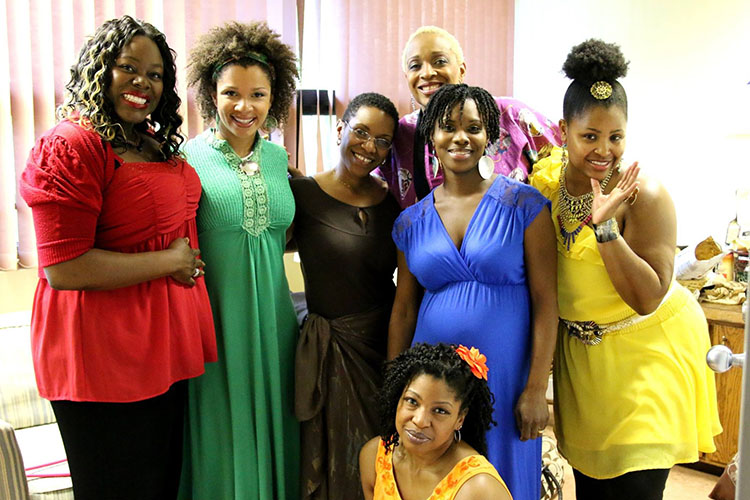
Born as a community performing arts and education company that aims to “inspire, educate and engage the cultures of our community with high quality professional performances with a focus on the Black experience,” as the group’s mission statement explains, Ebony Road Players has, and continues to, set the stage for dialogues about race and culture in the city.
“For me, what was important doing these theater productions was I found out so much about myself as a black woman, about history, about things I never knew about,” Hyde says, referring to the years she has spent as an actress. “We did a show years ago at Civic Theatre called ‘Having Our Say,’ [which Ebony Road Players also performed], and it’s about these two sisters, the Delany sisters, who lived to be over 100 years old and died in the 1990s. Their whole history of being born in the south, Jim Crow, the Harlem Renaissance — all those things are wrapped up in their story.
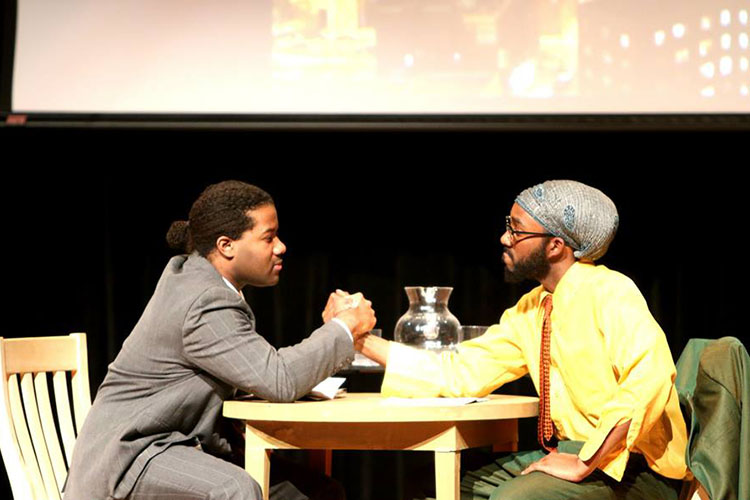
“I always think of theater and a lot of the arts in general have a tendency and opportunity to tell these stories you don’t get in school, or these stories that maybe your community has not delved into or talked about much,” she continues. “With this theater, we wanted to be able to make sure people are able to experience some of these things, these histories, and tell their own history. Theater is a way to consume harsh history, and an unknown history, and have people discuss what was going on then in comparison to what’s going on now.”
In other words: actors, playwrights and everyday citizens get a chance to not only see race through others’ eyes, they also get to share their own stories. The theater has offered playwriting classes for both adults and children, and they’ve presented community dialogues centered around race. For example, Ebony Road Players board member Breannah Alexander, the director of strategic programs at the Grand Rapids-based Partners for a Racism-Free Community, led a talk about race at Hope College, where Hyde teaches music, as part of the theater group’s efforts.
“People want to talk about race, but it can be difficult with the history of Grand Rapids,” says Hyde, who grew up in Grand Rapids and graduated from Creston High School and Aquinas College. “It’s known for being segregated and not a great place for black people to live. That we didn’t even have our own black theater, that’s saying a lot.”
In just the couple years that Ebony Road Players has been in existence, it has performed “For Colored Girls Who Have Considered Suicide / When the Rainbow is Enuf;” “The Story,” about an ambitious black newspaper reporter; “Having Our Say;” “The Meeting,” which depicts a meeting between Malcolm X and Dr. Martin Luther King, Jr.; and two plays — “Blackbird” and “One Simple Question” — performed for “Loving Day,” a celebration that occurs annually in Grand Rapids, and throughout the United States, which honors the Loving V. Virginia Supreme Court Case of 1967 that made interracial marriage legal across the country. Plus, two local playwrights, Todd Lewis and Amisha Groce, penned an original play, “Don’t Mind Me,” which was produced as a fundraiser for Grand Rapids’ Family Outreach Center, a mental health facility that aims to provide services to residents who are lower income.
The group will perform its next play, “One Simple Question,” an original play by Aquinas College theatre professor Randy Wyatt, on Thursday, Feb. 23 at 7:30pm at the Wege Ballroom in Aquinas. The 35-minute, five-woman ensemble pieces together stories of interracial love and marriage in the U.S., beginning with Richard and Mildred Loving, the couple involved in the Supreme Court case, and including the experiences of West Michigan women, including Hyde, who is married to guitarist Mike Hyde, whom she met in 1976 when his rock band was on the lookout for a new singer. “One Simple Question” is free and open to the public; donations will be accepted.
That these productions both address race and offer acting jobs to people of color is a welcome change for dramatists in Grand Rapids, says actress Brooke Bruce.
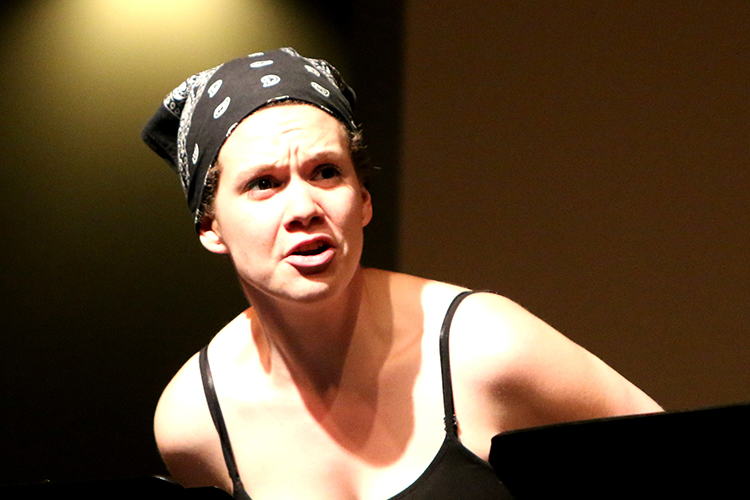
“It’s a weird thing in the community — if you have even an ounce of ethnicity to you, it’s very easy for [casting directors] to be like, ‘Well, they don’t need to be a lead,’ or be overlooked because they’ll just find a blonde,” says Bruce, who is performing in “One Simple Question.” “I was really excited to finally be working with a group where it’s like, ‘Hey, I’m mixed race, and that’s cool.’”
Plus, Bruce says, it’s a relief to be around people who can empathize with your own experiences with race. That actors can talk to one another about these experiences — and share it with audiences — is more than cathartic; it’s essential for a city, and a country, dealing with racism and prejudice.
“We want to address people’s historical fallacies — for example, somebody once told me that white people ‘saved’ black people from slavery, that they died to free them,” Hyde says. I realized that’s a narrative that they have, and if we don’t tell the actual stories, then that narrative is true.”
In addition to the group’s performances, it offers education programs: right now, Hyde notes they’re working with second graders at Coit Creative Arts Academy, and she’s planning on offering a spring break program similar to the one she led last year at Hope Church. Then, nine children from different backgrounds and surrounding school systems, including Grand Rapids Public Schools, Hope Academy of West Michigan and Forest Hills, spent a week writing a play, “Middle School Chronicles,” which they then performed for their parents.
“They spent days talking about bullying, social media, best friends, freedom — they spent time exploring these issues,” Hyde says. “At the end of the play, they talk about who they are; identity was important in this. At the very end, they wrote, ‘and I matter.’ I just sat there and wept. They were so good.”
With a successful couple years behind them, the Ebony Road Players are looking to the future, including rallying support from volunteers and donors. The organization has landed support from a number of fellow groups throughout the city, including Harmony Hall, which will host an Ebony Road Players fundraiser/birthday party for Hyde at the restaurant on Sunday, March 5.
As for one of the group’s biggest goals for the future? Address misconceptions about black theater.
“Even though we’re a black theater company, black people are not monolithic,” Hyde says. “The stories we tell are important to all voices. This is one of the problems I have: black theater scares people. People will say, ‘You’re a black theater company; does that mean I can’t come?’
“We’ve been taught to be separate for so much,” she continues. “But this is theater; anyone is welcome. We’re the most loving people there are. We just want to reach out to a community who hasn’t had this type of opportunity for a long time.”
For more information about Ebony Road Players, you can visit the group’s website and Facebook page or email info@ebonyroad.org.

